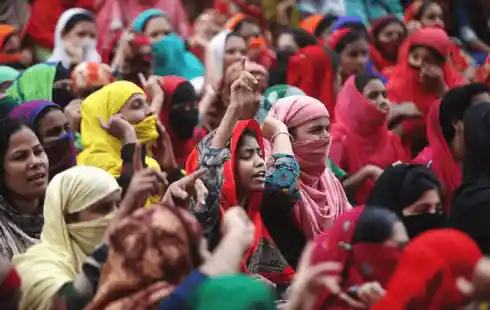
Ethical Innovation in iGaming: Why Social Responsibility is a Growth Driver for Soft2Bet
Section: Arts
 Dhaka, Bangladesh, August 4, 2024 - At least 34 people have died this Sunday in Bangladesh following clashes between students demanding the government's resignation and supporters of the ruling Awami League party, led by Prime Minister Sheikh Hasina. The protests, initially peaceful and sparked in early July, have escalated into violence, resulting in over 200 deaths so far.
Dhaka, Bangladesh, August 4, 2024 - At least 34 people have died this Sunday in Bangladesh following clashes between students demanding the government's resignation and supporters of the ruling Awami League party, led by Prime Minister Sheikh Hasina. The protests, initially peaceful and sparked in early July, have escalated into violence, resulting in over 200 deaths so far.
The unrest began with a student movement opposing reserved quotas in public sector jobs for descendants of those who fought for Bangladesh's independence in 1971. Although the Supreme Court ordered a reduction of these quotas from 30% to 5%, protesters have continued to demand justice for victims of government repression and call for the government's resignation.
Incidents and Casualties
The eastern district of Feni reported the highest number of fatalities, with five people dead. In the northern district of Rangpur, four individuals, including an official and his bodyguard, were killed according to local authorities. In Kishoregang, three people died, two of them burned in a fire set at the home of an Awami League leader. Additionally, 18 more deaths were confirmed in various districts, including the capital, Dhaka, where the situation has become particularly volatile.
In many cases, the victims suffered gunshot wounds, such as the two people killed in Munshiganj, as confirmed by the superintendent of the local health center, Abu Hena Muhammad Jamal. The streets of Dhaka and other cities have turned into battlegrounds, with violent clashes between protesters and government supporters, many armed with sticks and metal pipes.
Government Response and Control Measures
In response to the escalating violence, the Ministry of Home Affairs has reinstated a curfew in all cities and imposed a telecommunications blackout. These measures aim to curb the organization of further protests and maintain security.
The students, organized under the Student Movement Against Discrimination, have intensified their demands, now calling for the complete resignation of Hasina's government. They have rejected an offer of dialogue from the prime minister and have called for a total boycott of the government, including refusing to pay taxes.
Context and Repercussions
The protests initially arose as a response to the job quota system but have expanded in reaction to government repression and violence by Awami League supporters. Human rights organizations, such as Amnesty International, have condemned the excessive repression by security forces and mass arrests, affecting around 10,000 people.
The crisis poses a significant challenge for Sheikh Hasina, who has ruled Bangladesh for over 15 years and assumed her fourth consecutive term in January, following elections boycotted by major opposition parties. The situation remains tense, and the political future of the country is uncertain as protests continue and violence escalates.

Section: Arts

Section: Arts

Section: News
Section: Arts

Section: Business

Section: Arts

Section: Arts

Section: Business

Section: Business

Section: Arts
Health Insurance in Germany is compulsory and sometimes complicated, not to mention expensive. As an expat, you are required to navigate this landscape within weeks of arriving, so check our FAQ on PKV. For our guide on resources and access to agents who can give you a competitive quote, try our PKV Cost comparison tool.
Germany is famous for its medical expertise and extensive number of hospitals and clinics. See this comprehensive directory of hospitals and clinics across the country, complete with links to their websites, addresses, contact info, and specializations/services.
The couple Eva-Maria and Berthold Schneider has enthusiastically and expertly built an exquisite collection of Greek vases and other works of ancient small art over the years. Personal preferences often played a role in the acquisition of pieces. For instance, a rare oil vessel dating back to around...



No comments yet. Be the first to comment!